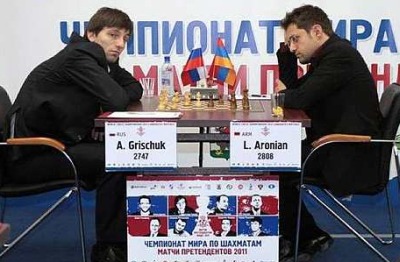Watch the thrilling finale live on the Internet.
CHESSWISE, this has been a rather eventful fortnight. The field, which started out with eight players, has by now been whittled down to only two.
In case you do not know what I’m talking about, it’s about the world championship Candidates tournament. Ever since it was announced at the end of last year that Kazan would be the venue of this series of elimination tournaments, I have been eagerly awaiting it.
Before anyone asks, “Kazan, where?” let me just add as a preamble that this is the capital city of the Tatarstan Republic in Russia. It is supposed to be the eighth largest city in Russia. And it is also supposed to have a sports-mad culture. Come 2018, Kazan will be a venue for the FIFA World Cup.
But before that, the Candidates tournament takes centre stage in Kazan and the rest of the chess world. The tournament consists of three stages: the quarter-finals from May 5 to 9, followed by the semi-finals from May 12 to 16 and the final which kicked off yesterday. The event ends next Thursday and that is when the official challenger to the world champion will be known.
The Norwegian grandmaster, Magnus Carlsen, was supposed to be participating in this Candidates cycle but last November he announced his withdrawal. He was replaced by Alexander Grischuk.
This time there are two former world chess champions, one former challenger and five others who happen to be in the current list of top 15 chess players in the world.
Back to the quarter-finals – the first two players to qualify were Gata Kamsky and Boris Gelfand. Both were born in Russia but Kamsky is now an American citizen, while Gelfand has become an Israeli.
In his quarter-final tournament match-up, Gelfand had beaten the Bulgarian grandmaster, Shakhriyar Mamedyarov, by a 2½-1½ score over four games. Similarly, Kamsky had shocked the Bulgarian former world champion Veselin Topalov by the same score line.
Topalov’s defeat was easily the biggest upset result among the four quarter-final tournaments. Kamsky simply absorbed all the pressure from Topalov, even subjecting himself to defending difficult positions and falling into great time pressure.
The other two quarter-final tournaments went into the play-offs.
The first to qualify from these play-offs was Grischuk, who beat the world number three player, Levon Aronian. All their four normal time control games were drawn but in the rapidchess play-off, Grischuk struck Aronian a big blow by winning two games.
Vladimir Kramnik, also a former world champion, scraped through the other play-off match which went into extra time. After having achieved four drawn games against the Azerbaijani grandmaster Teimour Radjabov in the normal regulation time control games, the two players again split the points in the four rapidchess play-off games.
Progress to the second round or semi-final matches thus depended on a mini-series of blitz games. Radjabov won the first blitz game and was set to qualify when a draw hovered above the second blitz game.
However, Radjabov came undone by the chess clock. Quite inexplicably, the clock suddenly reset by itself in the midst of the game. By the time the game resumed, Radjabov’s concentration was gone and he lost tamely to allow Kramnik to level the score. It was now on to the second blitz mini-series. This time, it was Kramnik who won the first blitz game to take the lead in the match. There was to be no repeat of the same clock problem in the second blitz game which ended drawn. So at the end of a thrilling set of play-off games, Kramnik was the last player to advance to the semi-finals.
After two days of rest and recovery, the semi-final stage began on May 12. Kramnik found himself paired against Grischuk, while Gelfand was drawn to play Kamsky. Needless to say, the tension that was so evident in the quarter-finals spilled over to the semi-finals. The four games in each match, played with normal regulation time control, were drawn and so the players went into the rapidchess play-offs.
Here, Kamsky was the first to draw blood when he won the third game after a horrible blunder by Gelfand. Normally in such short matches, losing a game could prove fatal since there would not be enough games to recover sufficiently.
But it wasn’t the case with Gelfand. With nothing left to lose, he threw everything against Kamsky in their last rapidchess game. And it was Kamsky who could not handle the psychological pressure. Almost immediately, he succumbed to Gelfand’s attack. The match was tied again and it would now go on to the blitz games.
In the other match, Grischuk and Kramnik headed to their own blitz showdown after all their four rapidchess games ended drawn.
It was here, in the blitz play-offs, that Grischuk and Gelfand finally prevailed in their respective matches to advance to the Final.
Tonight at seven o’clock, the second game of the Final between Grischuk and Gelfand will start. There are altogether six games at normal regulation time control. Who will be the eventual winner of this Candidates tournament, then? It’s going to be a thrilling finale which all of us can watch live on the Internet.
Various websites and blogs are carrying the games live and some of the best I can recommend are ChessDom (chessdom.com) and PlayChess (playchess.com). Alternatively, the Internet chess servers are all buzzing with activity as their members log in to watch.

